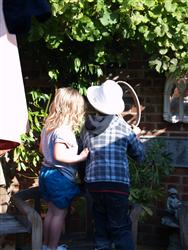
Discover the key physical and mental changes which take place over our lifetimes
This course provides a solid introduction to how people's psychology (attitudes/state of mind) develops throughout life. This is a course for people of any age in a counselling, supporting, or teaching capacity, who will benefit from understanding how physiological and psychological changes over the lifespan affect human behaviour. Parents and carers will gain greater insight into issues that present particular challenges at different stages of the lifespan, especially from adolescence to old age.
This subject examines changes across a broad range of topics including: motor skills and other psycho-physiological processes, problem solving abilities, conceptual understanding, acquisition of language, moral understanding, and identify formation, through to relationships, marriage, work-life balance and retirement.